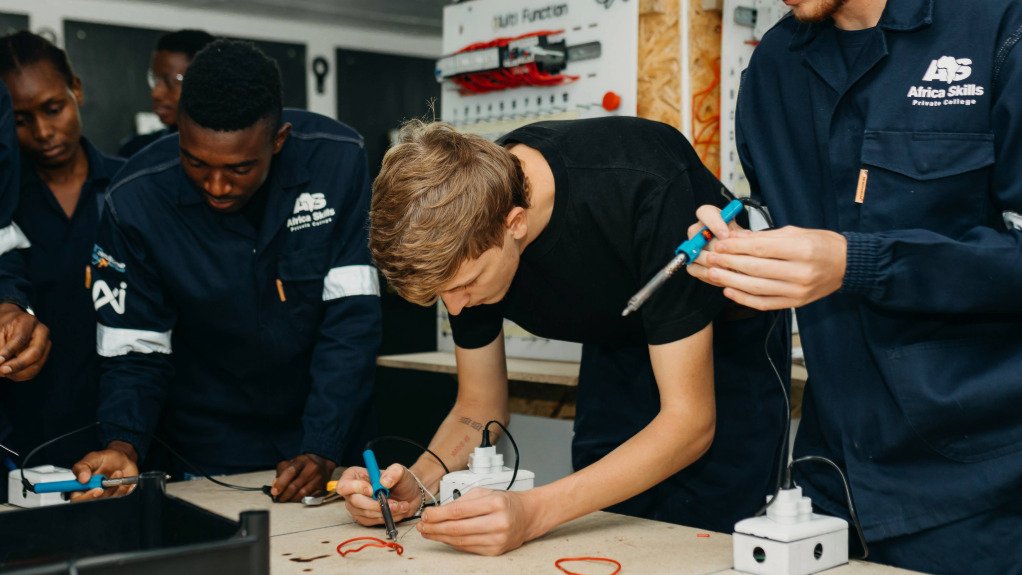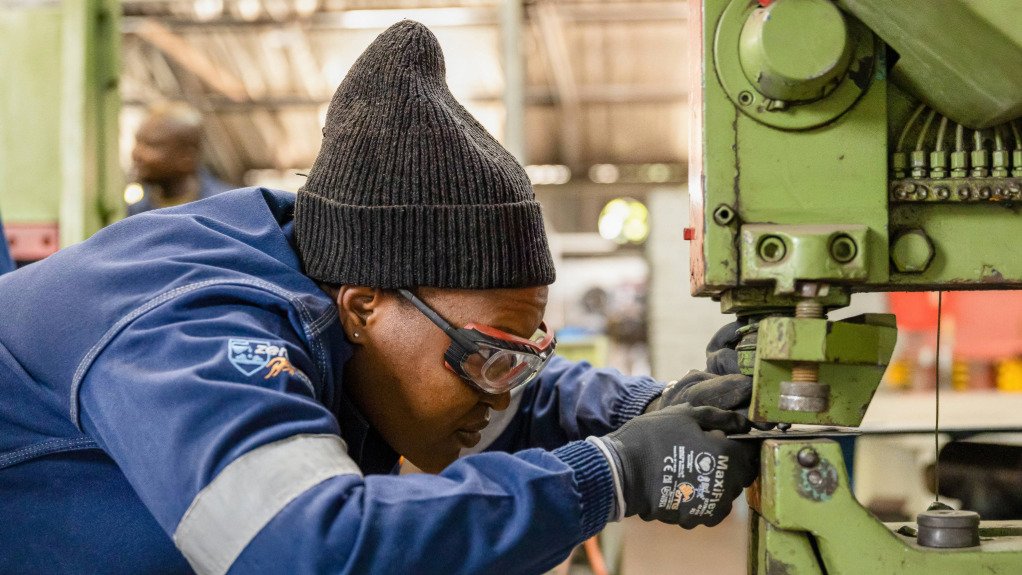Global refractory and industrial solutions provider Dickinson Group of Companies (DGC) Africa aims to mitigate challenges – such as limitations in infrastructure, resource constraints and workforce migration facing Francophone and sub-Saharan African countries – by expanding artisanal skills development, some of which is related to its furnace services.
DGC Africa’s deep-rooted expertise in the mining, metals smelting and mineral processing sectors provides a strong foundation for the training programme designed in collaboration with artisan training and development provider UXi Artisan Development.
Countries such as the Democratic Republic of Congo (DRC), have "immense potential" because of an abundance in natural resources, though the country has yet to capitalise on its wealth, says DGC Africa CEO Trevor Dickinson.
This is a result of a significant skills gap that hinders local participation in “booming” industrial sectors, with the gap the cause of high unemployment rates, particularly among youth.
He adds that the allure of job opportunities in urban centres, or abroad, may lead to workforce migration, therefore affecting the retention of skilled artisans in local communities.
“By equipping individuals with valuable skills, we empower them to secure gainful employment, create entrepreneurial opportunities, and contribute actively to economic growth.”
DGC’s training programme will provide other benefits, such as local talent-pool enhancement, thereby assisting in the development of a skilled local workforce that can be used to reduce dependency on external expertise and enhance productivity, while fostering a culture of innovation and excellence within the region, Dickinson explains.
There is also the added benefit of industrial relevance, where the development of artisanal skills will ensure that the workforce remains aligned with industry requirements, consequently improving job readiness and employability.
Dickinson adds that investing in skills development will lead to improved living standards of locals, better social cohesion and elevated community development, as individuals will become economically self-sufficient.
“Through collaborative partnerships and knowledge-sharing initiatives, skills development facilitates the transfer of best practices, technical know-how and industry standards across borders.”
As an example of its training and skills development initiatives, DGC Africa has partnered with DRC-based Kamoa-Kakula copper mine – a joint venture between diversified miners Ivanhoe Mines and Zijin Mining, mining company Crystal River and the DRC government – where DGC has provided its training material at no cost.
Kamoa-Kakula will start translating all the training material into French, consequently enabling DGC Africa to use these materials in other Francophone countries.
Despite its focus on skills development, Dickinson highlights that the company’s training programme faces multiple challenges, including inadequate existing infrastructure such as training facilities, equipment and wireless connectivity.
He also warns that limited access to funding, materials and technology can potentially hinder the scalability and sustainability of training programmes, especially in remote or underdeveloped areas.
One of the more significant challenges has been cultural and linguistic diversity, and that addressing diverse cultural norms, overcoming language barriers and adapting to different learning preferences, requires customised approaches to ensure that training programmes are inclusive and effective.
Keeping pace with rapidly evolving industry trends, technologies and standards requires continuous upskilling that prioritises ongoing investment and adaptation in training methodologies, Dickinson adds.
“By fostering a supportive ecosystem, leveraging digital technologies and promoting lifelong learning, we aim to overcome barriers and maximise the positive impact of artisanal skills development across the region.”
According to DGC Africa, early indications of the success of its training programmes point to promising results, as many graduates are being employed after completing the training programmes.
The company aims to ensure that the training programmes maintain a consistent dialogue in the communities it serves to ensure that it will meet local needs and that there is substantial community involvement in planning and execution.
DGC Africa and UXi Artisan Development aim to expand successful programmes to other regions and sectors in the DRC, scaling up its impact and investing in training infrastructure to support sustainable growth, with the support and cooperation of local governments.
Edited by: Donna Slater
Features Deputy Editor and Chief Photographer
EMAIL THIS ARTICLE SAVE THIS ARTICLE
ARTICLE ENQUIRY
To subscribe email subscriptions@creamermedia.co.za or click here
To advertise email advertising@creamermedia.co.za or click here















